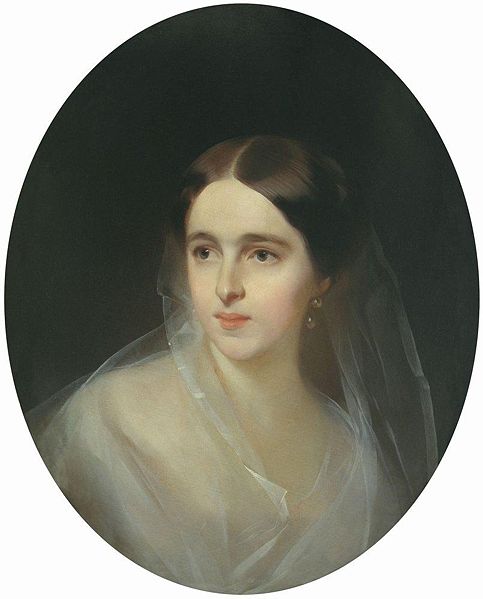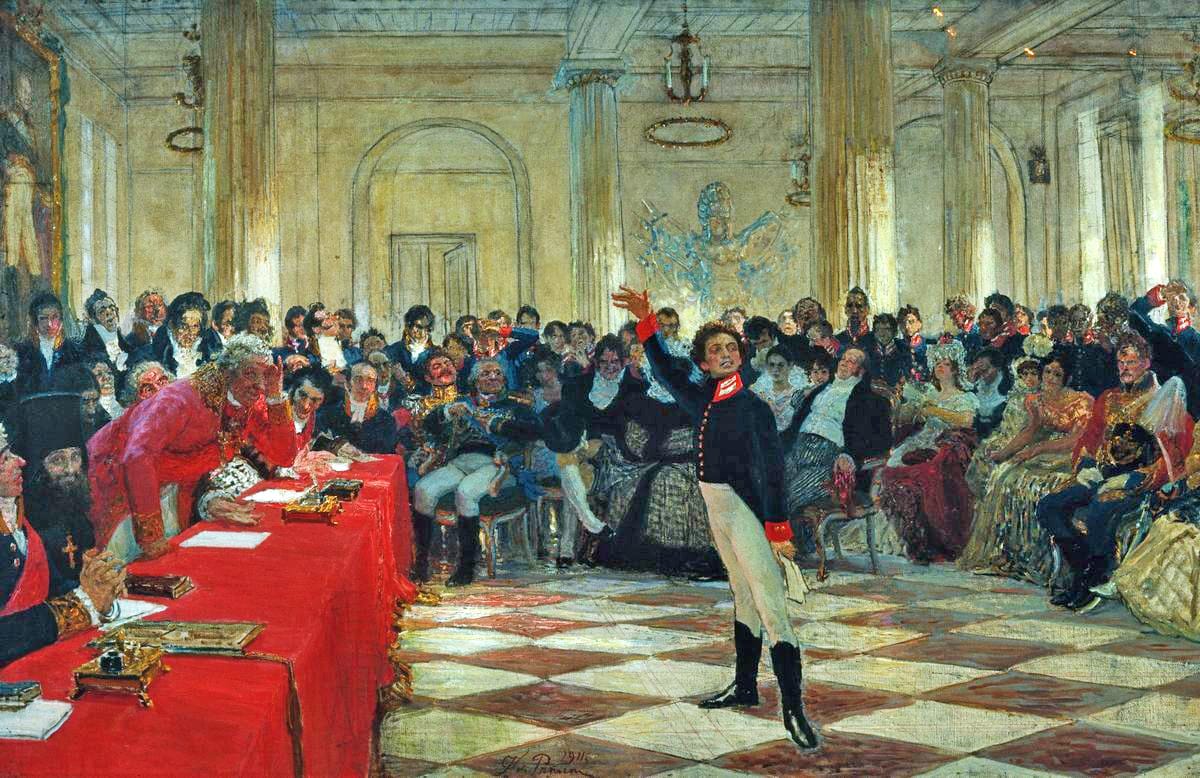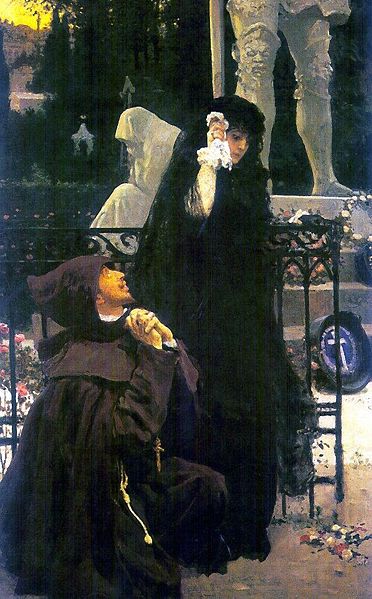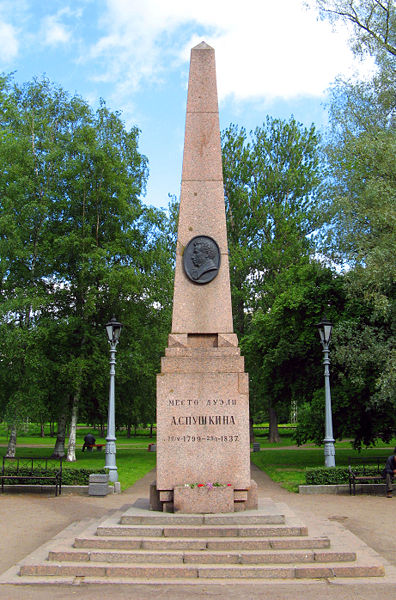Pushkin's Duel with Don Juan

Should a man lose his life over a beautiful woman? These days it's hard to comprehend the death in 1837 of Alexander Pushkin, the father of Russian literature, from a duel.
Duels were illegal of course, but Pushkin, who had dueled before, took the bullet in his stomach defending his honor. Why? Is it enough to say that he was insulted that his wife may have been having an affair? Do poets and geniuses behave as foolishly as the next man? They do indeed. He was only 37. The location of his grave in St. Petersburg is at the bottom of this page.

This is his wife, Natalia Nikolaevna Pushkina (née Goncharova), painted more than a decade later in 1849 by Ivan Makarov. The rumor that had so offended Pushkin was that his antagonist, Georges d'Anthès, who was recently married to Natalia's sister, was having an affair with the beautiful Natalia. We have no way of knowing whether it was true - most historians think it wasn't - but Pushkin was angry and frustrated and stubborn. The duel is still going on today: some Russians fiercely defend Pushkin; some foreign historians and biographers are critical of him.

The above painting by Ilya Repin from 1911 shows Pushkin performing as a 16-year-old and it captures his flair better than the formal portrait paintings of later years. Its full title is "Alexander Sergeyevich Pushkin recites his poem before Gavrila Derzhavin during the Tsarskoye Selo Lyceum exam on January 8th, 1815."
Pushkin is best known for Eugene Onegin, the historical tragedy Boris Godunov, the short story The Queen of Spades and the poem The Bronze Horseman.
However, my favorite is the little known The Little Tragedies, four very short but wonderful plays about obsession that he wrote in 1830. The first is The Miserly Knight, which is about greed. The second, Mozart and Salieri, is about envy and it became the basis of Peter Shaffer's play and the Oscar-winning film Amadeus. Pushkin's Salieri begins with a soliloquy: "There is no justice here on earth, they say. And none in heaven either" and he goes on to murder Mozart with poison. The final play, A Feast in Time of Plague, is more like a poem and reminds me of Auden's masterpiece As I walked out one Evening.
It's the third play, The Stone Guest, which is most admired. It's certainly the longest. It is based on a play by Spanish writer (and monk) Tirso de Molina published in 1630 and it is the story of Don Juan and his comeuppance. As in The Bronze Horseman, a statue comes to life and crushes him! Mozart's great Don Giovanni uses this scene to great effect - and I think of the irrepressible Don as the prototype for Goethe's Faust.
Below is Repin's painting of The Stone Guest (1885), showing Don Juan disguised as a monk and Doña Anna at her husband's grave:

Translations of The Little Tragedies from the Russian vary a lot - I used Stephen Mulrine's (2002).
Below is the monument in a small park in St. Petersburg where the Pushkin duel took place. It is a 20 minute walk from Chyornaya Rechka ("Black River") metro station - named for the events of 1837 - near the center of the city.

For someone else who faced a duel, Letter from an Unknown Woman: here and here.
